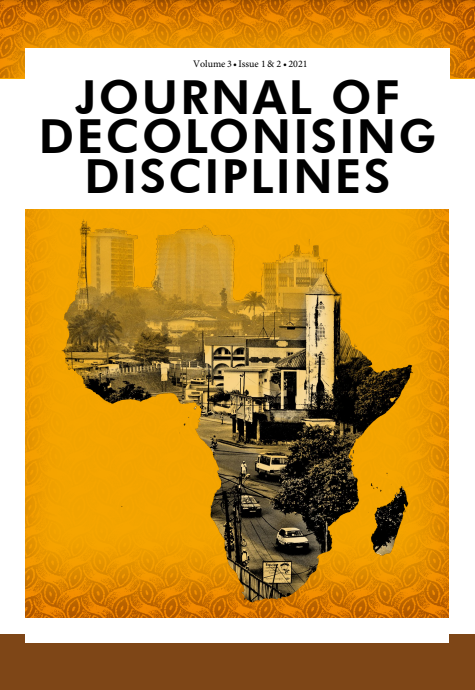Now Turning to Our Tomorrows: Decolonial Futures in the Study of Islam
DOI:
https://doi.org/10.35293/jdd.v3i2.3642Keywords:
Religion Studies, Decolonization, Study of Islam, Islamic studies, futures studies, Islamic liberation theology, decolonial theology, decoloniality, coloniality, Fallist movements, decolonial turn, Global South, Rhodes Must Fall, Fees Must FallAbstract
The emergence and growth of the decolonial movement in recent years has had a dramatic impact on universities around the world, inspiring new epistemic, political and ontological shifts across a wide range of disciplines. These shifts are broadly described as forming part of ‘the decolonial turn’ (Maldonado-Torres 2007: 261). As new generations of academics in the Study of Islam prepare to further the project of knowledge production in the context of post-Fallist universities, this paper seeks to address the following questions: What might it mean to decolonise the academic Study of Islam? How might decolonisation be consciously foregrounded as a future trajectory in the Study of Islam? After contextualising the academic study of Islam in South Africa and engaging with some of the major themes and concepts of decolonial scholarship, I review contemporary efforts to affect the decolonial turn in the Study of Islam through the initiation of summer schools and conferences. Applying what Sardar (2010) describes as ‘futures studies’ methodology, I propose ways to propel the decolonial turn as anticipatory intervention, based on an attempt to forecast the possible futures that await in the next five to ten years and beyond.


